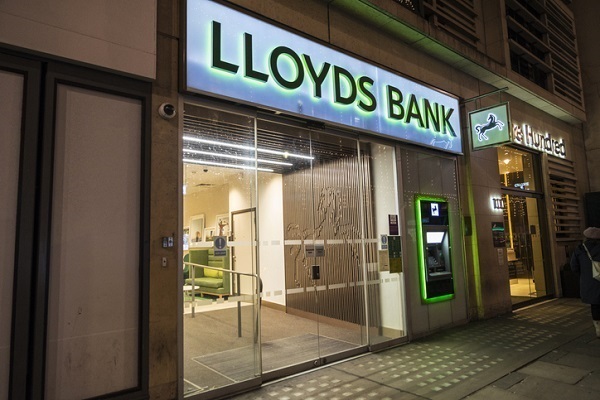ii view: income play Lloyds Bank steers steady course
Shares in this major UK bank are down by close to a tenth over the last year compared to an almost unchanged performance for the FTSE 100 index. We assess prospects.
28th November 2023 08:51
by Keith Bowman from interactive investor

Third-quarter results to 30 September
- Net income up 1% to £4.51 billion
- Pre-tax profit of £1.9 billion, up from £576 million in Q3 last year
- Capital cushion or CET1 ratio of 14.6%, up from 14.2% in Q2
Chief Executive Charlie Nunn said:
“Guided by our purpose, we remain focused on supporting our customers and helping them navigate the uncertain economic environment. The Group continues to perform well. Robust financial performance and strong capital generation in the first nine months of the year was driven by net income growth, cost discipline and resilient asset quality. This performance allows us to reaffirm our 2023 guidance.”
- Invest with ii: Open a Stocks & Shares ISA | ISA Investment Ideas | Transfer a Stocks & Shares ISA
ii round-up:
Built on its acquisition of HBOS during the 2008 banking crisis, Lloyds Banking Group (LSE:LLOY) today is home to household brand names including Lloyds Bank itself, Halifax, Bank of Scotland, Lex Autolease, Scottish Widows and Birmingham Midshires.
It operates through the three core divisions of Retail, Commercial Banking, and Insurance, Pensions & Investments.
For a round-up of these latest results announced on 25 October, please click here.
ii view:
Operating largely in the UK, Lloyds employs around 58,000 people, servicing approximately 26 million customers across 16 different brand names. Competing against rivals including NatWest Group (LSE:NWG), Barclays (LSE:BARC) and HSBC Holdings (LSE:HSBA), its core strategy includes revenue growth from diversifying sources, improving its cost and capital efficiency, and maximising the potential of technology, data, and people.
For investors, the ongoing difficult economic backdrop has resulted in additional bad-debt provisions being made. Competition across the sector including that for mortgages and deposits remains fierce, while costs for Lloyds, which include those related to required investments, have also increased. Some in the City expect the net interest margin to come in weaker than expected in Q4 at around 3%, and a quiet UK housing market could drag on lending volumes.
- Nick Train: the UK stock market has a dividend problem
- The Income Investor: two dividend stocks with capital growth potential
- World’s biggest dividend stocks in Q3 2023
More favourably, management reiterated its full-year expectations, with estimates for UK economic growth upgraded to 0.4% for 2023 from 0.2% in the second quarter. The balance sheet remains strong, with a capital cushion, or CET1 ratio of 14.6% versus 14.2% the previous quarter. Its push towards digitalisation is ongoing, while arrears for its mortgage related loans are currently below that of 2019.
On balance, and while some caution looks sensible, a consensus analyst estimate of fair value at 60p per share and an estimated future dividend yield of over 6% looks attractive. That could satisfy existing shareholders and offer an option for others seeking exposure to UK banks and an attractive yield.
Positives
- Brand diversity
- Attractive dividend (not guaranteed)
Negatives
- Uncertain economic outlook
- Lacks the geographical diversity of some other banks
The average rating of stock market analysts:
Strong hold
These articles are provided for information purposes only. Occasionally, an opinion about whether to buy or sell a specific investment may be provided by third parties. The content is not intended to be a personal recommendation to buy or sell any financial instrument or product, or to adopt any investment strategy as it is not provided based on an assessment of your investing knowledge and experience, your financial situation or your investment objectives. The value of your investments, and the income derived from them, may go down as well as up. You may not get back all the money that you invest. The investments referred to in this article may not be suitable for all investors, and if in doubt, an investor should seek advice from a qualified investment adviser.
Full performance can be found on the company or index summary page on the interactive investor website. Simply click on the company's or index name highlighted in the article.